-
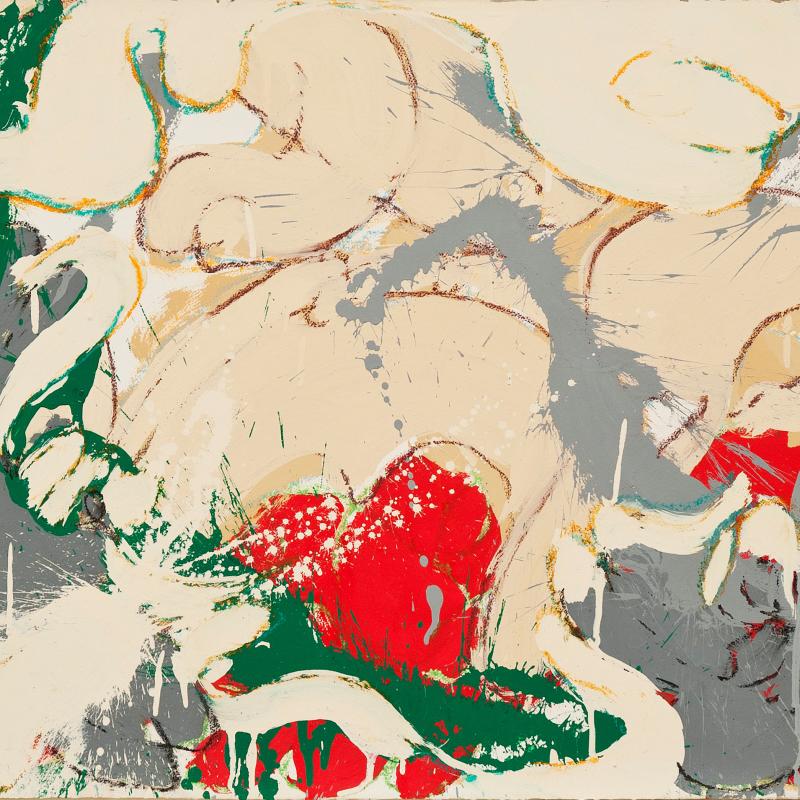 Norman BluhmComposition, 1975Mixed media on paper laid down on canvas22 1/2 x 30 inches,
Norman BluhmComposition, 1975Mixed media on paper laid down on canvas22 1/2 x 30 inches,
Framed: 31 1/4 x 38 3/4 inchesSigned: Bluhm 75 lower right
-
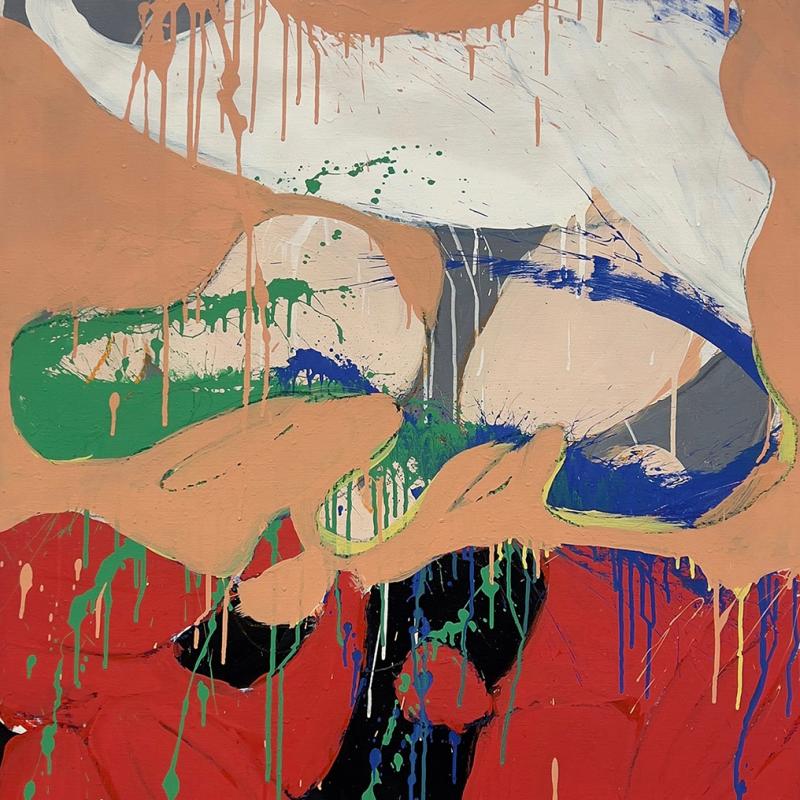 Norman BluhmHelen, 1974Oil on canvas51 ¼ x 39 ¼ inches
Norman BluhmHelen, 1974Oil on canvas51 ¼ x 39 ¼ inches
Framed: 53 ½ x 41 ¾ inchesSigned Bluhm / 74 / "Helen" (verso)
-
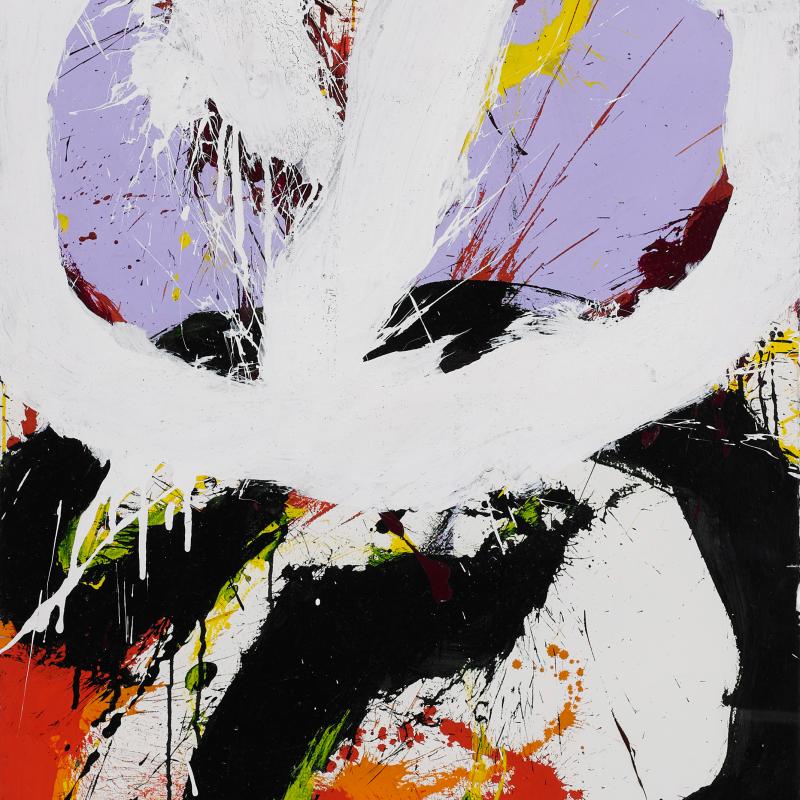 Norman BluhmUntitled (Lavender, Red, White, Black), 1967Acrylic on paper30 x 22 1/2 inches,
Norman BluhmUntitled (Lavender, Red, White, Black), 1967Acrylic on paper30 x 22 1/2 inches,
Framed: 42 3/4 x 34 5/8 x 2 inchesSigned: Bluhm 67 (l.r.) and Bluhm 67 (verso)
-
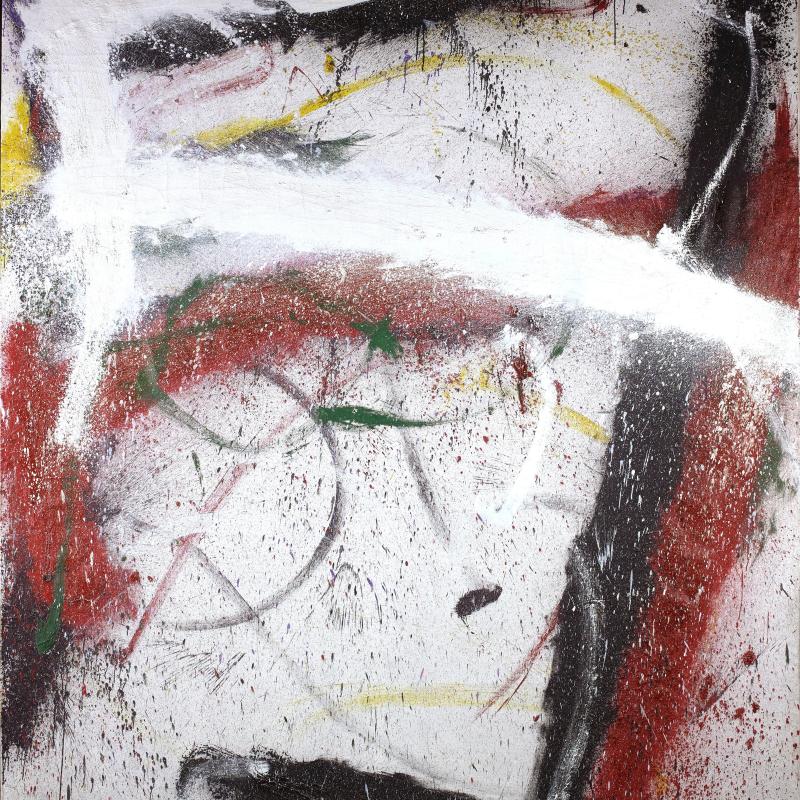 Norman BluhmArondite, 1963Oil on canvas114 1/4 x 96 1/4 inchesSigned: Bluhm / 63 lower right
Norman BluhmArondite, 1963Oil on canvas114 1/4 x 96 1/4 inchesSigned: Bluhm / 63 lower right
-
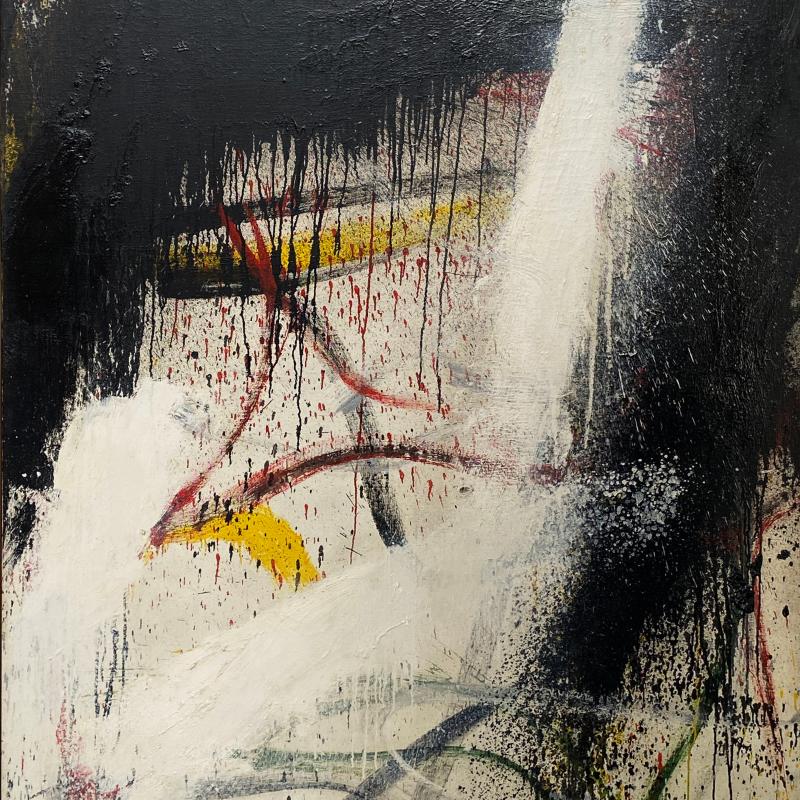 Norman BluhmSioux, 1961Oil on canvas60 x 48 inches
Norman BluhmSioux, 1961Oil on canvas60 x 48 inches
Framed: 61 1/2 x 49 1/2 inchesSigned: Bluhm / '61 lower right and Bluhm / '61 (verso)
-
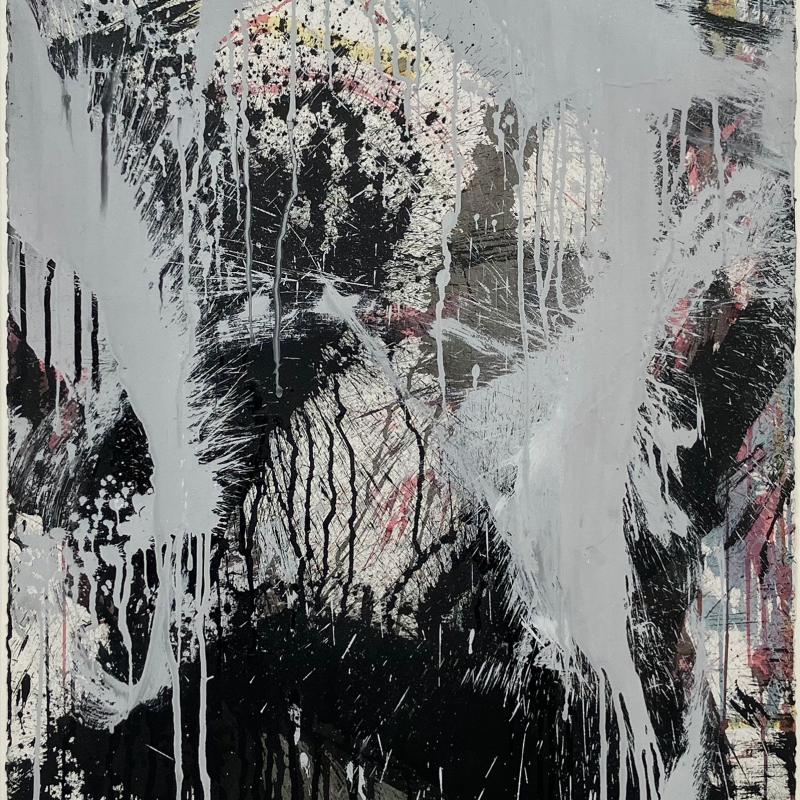 Norman BluhmUntitled, 1961Acrylic and watercolor on paper30 1/8 x 22 5/8 inches
Norman BluhmUntitled, 1961Acrylic and watercolor on paper30 1/8 x 22 5/8 inches
Framed: 40 1/2 x 32 3/4 inchesSigned: Bluhm '61 upper right
-
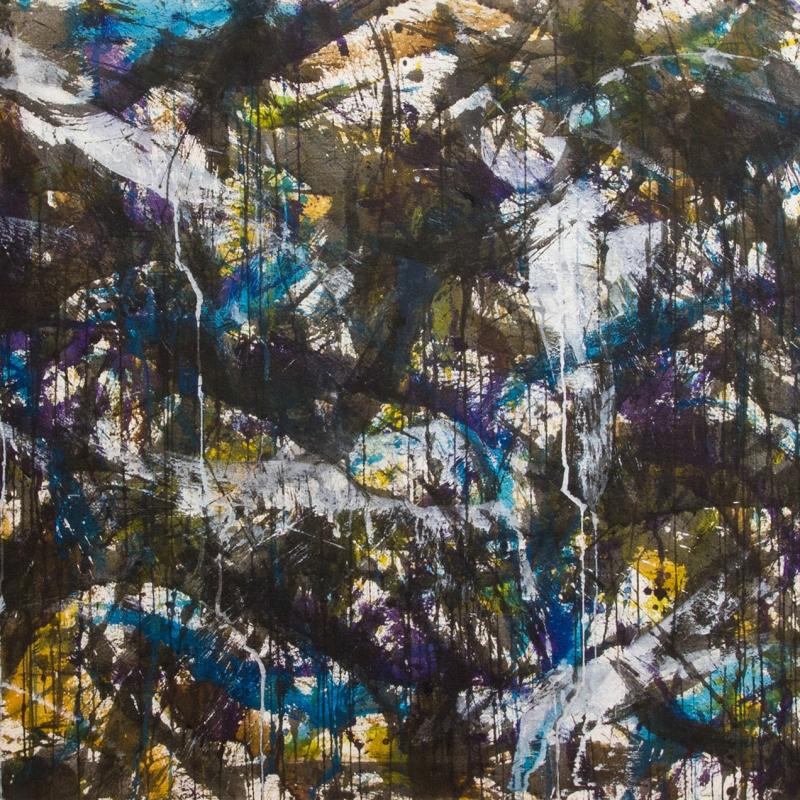 Norman BluhmFall, 1958Ink and watercolor on paper26 3/4 x 39 1/2 inches,
Norman BluhmFall, 1958Ink and watercolor on paper26 3/4 x 39 1/2 inches,
Framed: 35 x 48 inchesSigned: Bluhm 58 lower right
-
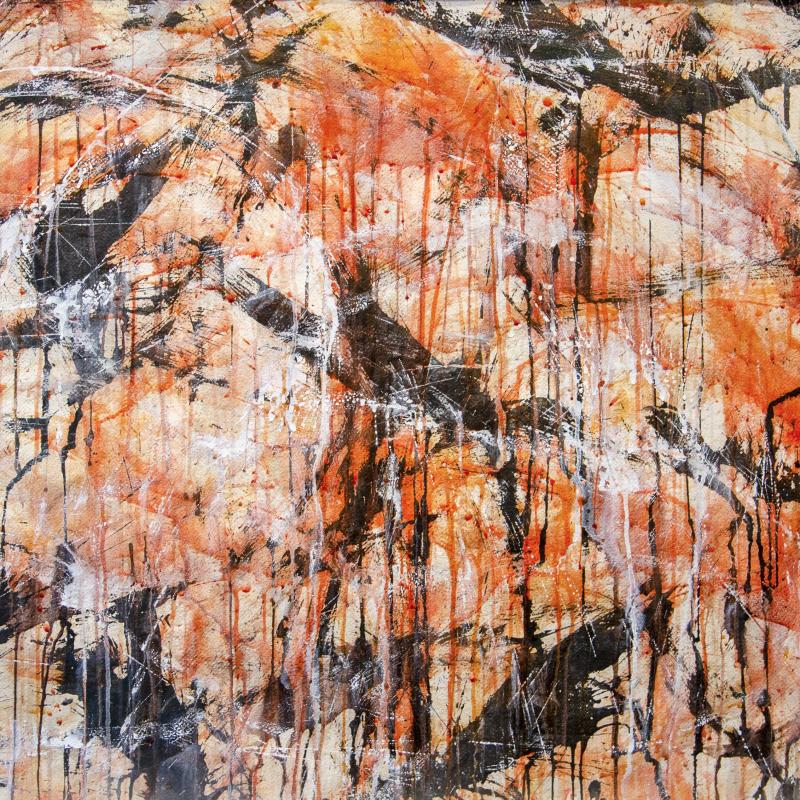 Norman BluhmGrande Fête de Nuit a Versailles, 1957Watercolor, ink, and gouache on paper27 x 40 inches,
Norman BluhmGrande Fête de Nuit a Versailles, 1957Watercolor, ink, and gouache on paper27 x 40 inches,
Framed: 33 3/4 x 46 3/4 inchesSigned: Bluhm / 1957 (l.r.) Norman Bluhm / 1957 (verso), Marked: Grande Fete de Nuit a Versailles (verso)
Overview
One of the foremost second-generation Abstract Expressionists, Norman Bluhm was born on March 28, 1921 on the South Side of Chicago and graduated with distinction from high school at the age of 16. He became Mies van der Rohe's youngest student at the Armour (now Illinois) Institute of Technology. For the next three years Bluhm was rigorously trained in the Bauhaus approach to modern architecture. He spent long hours at the drafting table, making meticulously detailed architectural drawings. In his free time he learned to fly an airplane and played semi-pro basketball. The exacting discipline of his studies coupled with his knowledge of flying and the intense physical regimen of basketball stood him in good stead as a soldier and later as an artist.
During World War II Bluhm served in the United States Air Force as a B-26 bomber pilot and flew 44 missions over North Africa and Europe most notably, the famous mission over Romania that destroyed the last oil supply of the Nazis at the cost of about 75% of American bomber crews.
Upon his return home Bluhm decided not to resume his architectural studies and instead decided to study art at the Academia de Belle Arte in Florence, Italy and at both the École des Beaux Arts and at the Académie de la Grande Chaumiére in Paris. Throughout the 1940's and 1950's he lived in Paris. He had numerous friends in the art, literature, and other creative fields. Among his close acquaintances were the artists Joan Mitchell, Sam Francis, Jean Paul Riopelle, and Zao Wou-Ki. He was married to Claude Souvrain until 1956 and returned home to the United States. Shortly thereafter he embarked on a successful career as an Abstract Expressionist Painter.
Bluhm came to New York in 1956 (the year Jackson Pollock died) and was a central figure in the second-generation of Abstract Expressionism. He was an integral part of the hard-drinking, hard- charging crowd who frequented the infamous Cedar Tavern, an almost mythical meeting place for New York bohemians.
A year after arriving in New York, Bluhm had his first solo show with the new Leo Castelli Gallery, where he appeared with such other notable artists as Robert Rauschenberg and Jasper Johns.
In 1961 he married Carolyn Ogle and stayed in New York City until 1969 with their two children, David and Nina. While in New York City Bluhm collaborated with the curator and poet Frank O'Hara to create a legendary collection of works entitled "Poem Paintings." From 1970 to 1980 Bluhm and his family lived in Millbrook, New York. From 1980 to 1987 they lived in East Hampton, New York and thereafter in East Wallingford, Vermont until his death on February 3, 1999.
An important figure in the heyday of Abstract Expressionism, Bluhm enjoyed substantial critical success during his lifetime. The Metropolitan Museum of Art, the Whitney Museum of American Art and the Museum of Modern Art are just a few of the museums that hold the work of Bluhm. Bluhm found greater comfort in painting than in any fame he might have achieved or in any time spent theorizing about art.
Shortly before Norman Bluhm died at his home in East Wallingford, Vermont on February 3, 1999 "Art in America" Editor Raphael Rubinstein predicted that his body of work would be as important to the 21st Century as Cezanne's work was to the 20th century.
Bluhm's work, while recognized and critically praised throughout his career, has never received the measure of appropriate attention that some of the work of his contemporaries like Jackson Pollack, Robert Rauschenberg, and Jasper Johns did. This lack of recognition was due in large part to his unwillingness to cater sufficiently to those in the commercial art world who would have promoted his work in order to ensure a continuing lucrative career as well as a lasting legacy. Bluhm's exact place in the annals of art history was complicated by the changing art tastes in the 1960's with the advent of Pop Art, a movement which Bluhm found utterly lacking both in beauty and in any form of emotion. Still and all there is no denying the great talent that Norman Bluhm exhibited in his works many of which are part of the permanent collections of several prominent museums.
Exhibitions
Leo Castelli Gallery, 1957 (solo)
Carnegie Institute, 1958
Paul Kantor Gallery, Los Angeles 1958
Galleria del Naviglio, Milan 1959
Whitney Museum of American Art, 1959, 1972
Leo Castelli Gallery, 1957, (solo), 1960 (solo)
"American Abstract Image", Guggenheim Museum, 1961
Galleria Notizie, Turin 1961
David Anderson Gallery, New York 1962
Galerie Semiha Huber, Zurich 1963
American Gallery, New York 1963
Galerie Smith, Brussels 1964
Galerie Anderson-Mayer, Paris 1965
"Two Decades of American Painting", Museum of Modern Art, 1966
"Large Scale American Painting", Jewish Museum, 1967
"Poem Paintings by Frank O'Hara and Norman Bluhm", New York University 1967
Galerie Stadler, Paris 1968, 1972, 1975, 1982, 1988
Corcoran Gallery of Art, 1969 (solo)
Martha Jackson Gallery, New York, 1971, 1972, 1974
Everson Museum of Art, Syracuse, New York 1973
Vassar College Gallery of Art, Poughkeepsie, New York 1974
Palazzo delle Prigioni Vecchie, Venice, Italy 1974
Galleria II Cerchio, Milan 1974
Galleria Rotta, Milan 1974
Contemporary Art Museum, Houston 1976
Robinson Gallery, Houston 1976
Corcoran Gallery of Art, Washington DC 1977
Fine Arts Center Gallery, State University of New York, Stony Brook, 1984
Herbert Palmer Gallery, Los Angeles 1985
Washburn Gallery, New York 1986, 1989, 1990, 1991
Zolla-Lieberman Gallery, Chicago 1986
"Norman Bluhm, "Works on Paper, 1947-1987", Fred L Emerson Gallery Hamilton College, Clinton, New York 1987
Anderson Gallery, Buffalo, New York 1992
Ace Contemporary Exhibitions, New York 1994
"In Memory of My Feelings: Frank O'Hara and American Art," The Museum of Contemporary Art, Los Angeles, 1999
Butler Institute of American Art, Youngstown, OH 1999
"The Late Paintings of Norman Bluhm", Station Museum of Contemporary Art, Houston, TX, 2007
"Norman Bluhm Drawings", Worcester Art Museum 2002
Museums and Public Collections
Addison Gallery of American Art, Andover, MA
Albright-Knox Gallery, Buffalo, NY
Arizona State University, AZ
University of Arizona Art Museum, AZ
Ball State University Museum of Art, IN
Chrysler Museum of Art, VA
Cleveland Museum of Art
Columbus Museum, GA
Corcoran Gallery of Art, Washington, D.C.
Dallas Museum of Art, TX
Dayton Art Institute
Everson Museum of Art, NY
Harvard University Art Museums, Cambridge, MA
High Museum of Art, Atlanta, GA
Hirshhorn Museum and Sculpture Garden, Washington D.C
Metropolitan Museum of Art, NY
Museum of Modern Art, NY
National Museum of American Art, Washington, DC
National Gallery of Victoria, Melbourne, Australia
Nelson-Atkins Museum of Art, Kansas City, MO
Neuberger Museum of Art, NY
New York University Collection
Phillips Collection, Washington, DC
Phoenix Art Museum
Smithsonian Museum of American Art
University of Iowa Museum of Art, Iowa City
